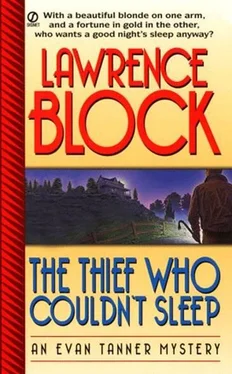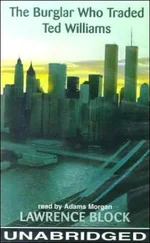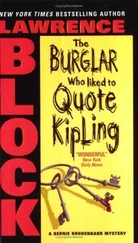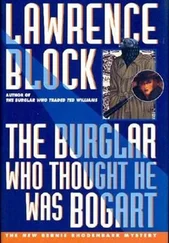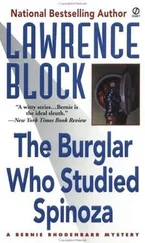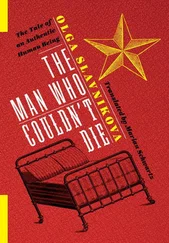We sat in a dingy back booth. He began talking in a loud voice about the joys of Paris and the need to escape from the reeking stench of fascism. I had two choices-I could try to sober him up or I could get him drunk enough to pass out. I had the waitress bring a full bottle of brandy and I poured one shot after another into Esteban, and ultimately his head rolled and his eyes closed and he sagged in his chair and quietly passed out.
I stood up and walked to the bar. A large man with sad eyes and a drooping moustache stood beside me. “Your friend,” he said, “says things which one should not say in the presence of strangers.”
“My friend is sick,” I said.
“Ah.”
“My friend has a sickness in his mind and must go for treatment. He must go to the hospital.”
“There is no hospital in Sort.”
“We cannot stay in Sort, then, for I must take him to a hospital.”
“There is a hospital in Barcelona. A fine modern hospital, where your friend would be most comfortable.”
“We cannot go to the hospital in Barcelona. There is only one hospital that will care for my friend properly.”
“In Madrid, then?”
“In Paris.”
“In Paris,” he said. I poured us each a brandy. He thanked me and said that I was a gentleman, and I said that it was pleasant to drink in the company of worldly men like himself.
“It is far,” he said slowly, “to Paris.”
“It is.”
“And one must have the right papers to cross the frontier.”
“My friend has no papers.”
“He will have difficulty.”
“It is true,” I said. “He will have great difficulty.”
“It will be impossible for him.”
“For worldly men,” I said carefully, “for worldly men of goodwill, men who understand one another and understand how life is to be lived, I have heard it said that nothing is impossible.”
“There is truth in what you say.”
“It is as I have heard it said by wiser men than I.”
“It is a wise man who listens to and remembers the words of other wise men.”
“You do me much honor, señor.”
“You honor me to drink with me, señor.”
We had another brandy each. He motioned me to follow him, and we sat at the table next to Esteban. He was still asleep.
“Call me Manuel,” the man said. “And I shall call you what?”
“Enrique.”
“It is my pleasure to know you, Enrique.”
“The pleasure is my pleasure.”
“Perhaps among my acquaintances there are men who could help you and your unfortunate friend. When one lives in a town for all of one’s life, one knows a great many people.”
“I would greatly appreciate your help.”
“You will wait here?”
“I will,” I said.
He stopped at the bar and said something to the bartender. Then he disappeared into the night. I ordered a cup of black coffee and poured a little brandy into it. When Esteban opened his eyes, I made him drink more of the brandy. He passed out again.
Manuel returned while I was still sipping my coffee. Two other men accompanied him. They stood in the bar and talked in a language I did not understand. I believe it was Basque. The Basque language is one I do not speak or understand, an almost impossible language to learn if one is not born to it. The grammatical construction is as much of a nightmare as the language of the Hopi Indians. I felt very much at a disadvantage. I am not used to being unable to understand other people’s speech.
Manuel left his companions at the bar and approached our table. “I have consulted with my friends,” he said. “They are of the opinion that something can be done for you.”
“May God reward their kindness.”
“It must be this night.”
“We are ready.”
He looked doubtfully at Esteban. “And is he ready, also?”
“Yes.”
“Then come with me.”
I had trouble getting Esteban to his feet. He swayed groggily and offered up dramatic curses to fascism and the state of the beautician’s profession in Madrid. Manuel turned to his friends at the bar, touched his head with his forefinger, then pointed at Esteban and shrugged expressively. He took one of Esteban’s arms, and I took the other, and we walked him out into the night.
The other two men followed us. Half a mile from the café we entered a dingy one-room hut. The smaller of Manuel’s two friends, with long sideburns and denim pants frayed at the cuffs, moved around the room lighting candles. The other uncapped a flask of sweet wine and passed it around. I didn’t let Esteban have any. It seemed time to sober him up a bit.
Manuel introduced us all around. The small man with the sideburns was called Pablo; the other, fat, balding, and sweaty, was Vicente. I was Enrique and Esteban was Esteban.
“I have it that you wish to go to France,” Vicente said.
“Yes, and to Paris.”
“I will set the hair of Brigitte Bardot,” said Esteban.
“But the border is difficult.”
“So I have heard.”
Pablo said something quickly in Basque. Vicente answered him, then turned to me and resumed in Spanish. “You and your friend have a sympathetic reason for going to France. You must take your friend to a hospital, is it not so?”
“It is so.”
“For such fine purposes, one can bend laws. But you must know, my friend, that these are dangerous times. Many smugglers attempt to take contraband over the border.”
I said nothing. Manuel said something in Basque. I was furious that I had never been able to learn the language. I remembered one sentence that I had stubbornly committed to memory. “I will meet you at the jai alai fronton.” The Basque construction for this is torture-I the jai alai fronton at which is played the game of jai alai in the act of meeting I have you in the future. I don’t know how the Basques learn it.
“So you see,” said Vicente, “that it is necessary for us to examine your possessions so that we may assure ourselves that you are not smugglers.”
“I see.”
“For we help willingly but only when the motives of those we help cannot be called into question.”
I propped the black attaché case on a rickety card table and opened it. Pablo and Vicente gathered around, while Manuel stayed with Esteban. The various papers were passed over without a second glance. The clothes attracted no particular attention. The items I had purchased in Zaragoza received the lion’s share of attention.
“Ah,” said Vicente. “And what is this?”
“Beautician supplies.”
Esteban came rushing over to me. “For my salon!” He embraced me. “You are my friend, my brother. What have you bought for me?”
“Your supplies, Esteban.”
“My brother!”
Pablo was sorting through the bag of cheap cosmetics I had picked up. There were several plastic combs, a pair of scissors, some hair curlers, hardly the elaborate equipment one would use in a beauty parlor. He picked up a tin box of face powder, opened it, sniffed, and looked at me with raised eyebrows.
“Face powder,” I said.
Vicente licked a finger, dipped it into the can of face powder, licked it again, smiled, and said something in Basque to Manuel and Pablo. They began to laugh happily.
“Perhaps you will leave this here,” Vicente said.
“But it is necessary that we take it with us.”
“Ah, but can you not get better face powder in Paris? The French are renowned for their cosmetics, so I have heard.”
“This is special powder.”
“I can see that it is.”
“We have a great need for it.”
“A face powder with little scent to it,” Vicente said. “A face powder with a sweet taste, and yet a bitter undertaste. This is a most remarkable powder.”
“My friend obtains great results with this powder.”
Читать дальше
